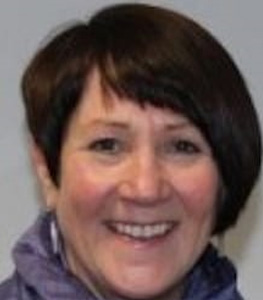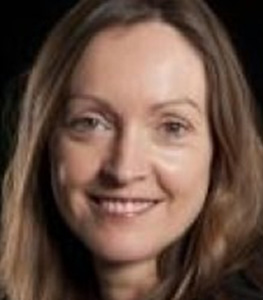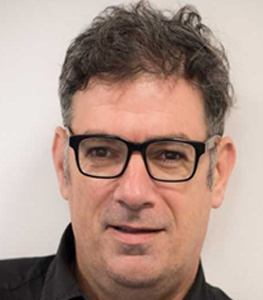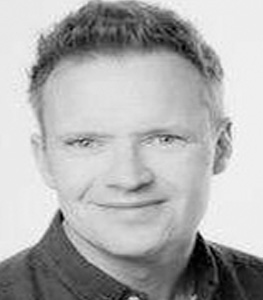The University of Lincoln
Current context
The University of Lincoln has identified Health as a key research priority with major strategic investment in health and health-related research. This development has built upon the University’s initial focus on health policy- and practice-related research within its School of Health and Social Care in the College of Social Science, by the recent establishment of the new Schools of Medicine (in 2018); the Lincoln School of Pharmacy (in 2013) and the School of Life Sciences (in 2012).
The University has a critical mass of research activity from “bench to bedside” within the interdisciplinary and inter-College Lincoln Institute for Health (LIH: http://lih.lincoln.ac.uk/), founded 2013. The work of the Institute encompasses research spanning the fundamentals of biomedicine and disease (including molecular and cell biology), through drug design and development and onto clinical practice.
The UDINE-C members are housed within The School of Health and Social Care, the second largest School at the University of Lincoln. Within the School, our research is strategically a range of empirical, applied and translational research along with knowledge exchange-related research and consultancy. There are high degrees of clinical involvement within our research which is co-ordinated thought our Research group: MH2aSC (http://mhred.lincoln.ac.uk/) which brings together health and social care academics and practitioners to accelerate research in mental health, mental well-being, transformation and innovation practice. Key themes include: Mental Health and Health and Social Care integration; Values Based Practice; Workforce Development and Service Innovation and Improvement. The group has also developed an international recognition for their work on the European nursing workforce. The MH2aSC group is led by Dr. Ian McGonagle and Dr. Ros Kane.
Staff from the School of Health and Social Care are actively engaged in a wide range of national and international research and professional networks. Examples include:
- The European Academy of Nursing Science (EANS) http://www.europeanacademy-of-nursing-science.com/
- The Association of UK University Hospitals is the voice of university hospitals (AUKUH) http://aukuh.org.uk/
Delivery of research training
We currently hold the contract regional for the Provision of internships to support Clinical Academic Careers in Nursing, Midwifery and Allied Health and UDINE members sit on the Health Education England: Midlands and East regional steering group which supports the on-going development of clinical academic careers. We utilise this opportunity in developing effective and collaborative working arrangements with other education providers and key stakeholders /funders for clinical research.
Staff profiles of UDINE-C members
Dr. Christine Jackson

Christine qualified as a therapeutic radiographer in 1973 which allowed her to pursue her interests in radiation science and caring for patients. She moved across into academic radiography and became principal of the Nottingham School of Radiotherapy in 1988. She developed her research interests around clinical competence and gained her M. Phil and PhD in this area. In 2001, she was appointed as the multi-professional advisor to the Trent Deanery and the Trent Workforce Development Confederation. Working with Professor Tony Butterworth, she undertook a number of Department of Health sponsored projects to support the clinical academic workforce across health and social care. This work culminated in the creation, in 2007, of a national programme funded by the National Institute of Health Research, to support nurses, midwives and allied health professionals to undertake clinically relevant Masters, PhD, post -doctoral and senior clinical scientist awards. The model is now replicated across all four countries within the UK and at regional and local levels. Christine moved to the University of Lincoln in 2007, as a Principal Research Fellow and the clinical academic work steam continues through the Mental Health, Health and Social Care (MH₂aSC) Research Group. She is a founder member of an international network of academic nurses- Udine C network and a visiting professor at the University of Maribor, Slovenia. Together with Professor Tony Butterworth, Christine has presented research on clinical academic careers at international conferences and has published widely. In 2017, following her retirement from the University of Lincoln, she was awarded an Honorary Fellowship of the University in recognition of her research achievements within the University and the national and international researcher workforce environment.
Dr. Ros Kane
With a background in nursing, Ros later graduated from University College London (UCL) with a BSc (Hons) in Anthropology and Geography and from The London School of Hygiene and Tropical Medicine (LSHTM) with an MSc in Medical Demography. Ros worked for ten years in the Centre for Sexual and Reproductive Health Research at LSHTM where she completed her PhD In 2005, a study of the optimal way to deliver sexual and reproductive health services to young people in England. During her time at LSHTM she worked on a wide range of studies around sexual and reproductive health and was a core member of the team responsible for the evaluation of the government’s national teenage pregnancy strategy from 2000-2004.
Ros is currently a Reader in Health Care and Director of Research in the School of Health and Social Care at the University of Lincoln. She is also a member of the College Research Committee, the School of Health and Social Care Leadership Group, a member of the Health and Social Care Doctoral Progress Committee and a Senior Fellow of the Higher Education Academy (https://www.heacademy.ac.uk/). For several years Ros was the programme lead for the delivery of the BSc (Hons) in Nursing at the University of Lincoln and in now the lead for the Health Education England funded Clinical Academic Careers Intern (Bronze Scholar) training across the Midlands and East.
Ros is on the Editorial Board of two international journals: Health Education and The Global Journal of Health Science. She also serves on a number of Scientific Advisory Committees including for the Royal College of Nursing International Research Conference.

Dr. Ian McGonagle

Ian is a Principal Lecturer in the School of Health and Social Care at the University of Lincoln. He qualified as a Mental Health Nurse in 1986 and worked as a clinician with people with long term mental health problems, both in-patient residential services and in the community. During a secondment to the NHS Trent Regional office he completed two large research projects on: advanced mental health nursing practice; and the education needs of prison health care nurses. On return to NHS clinical services, he gained experience in the organisations strategy department before accepting a promotion to the role of senior manager in a mental health trust with a responsibility for education and development. He was then approached to take a post with the National Institute for Mental Health in England (NIMHE) and the Centre for Clinical and Academic Workforce Innovation (CCAWI). He joined the NHS mental health new ways of working team and led the national implementation of the 10 Essential Shared Capabilities and the national Race Equality and Cultural Capability education programmes and other values based practice initiatives. He also worked on organisational development programmes for the national institute on mental health team development (Creating Capable Teams Approach).
Ian joined the University on a full-time basis in 2007. While at the University he completed national and international projects on; ‘Refocusing the Care Programme Approach’; A learning resource for care coordinators (Department of Health). ‘Essential Capabilities’ a ‘values based’ educational programme for children and young peoples’ services in England (National Children’s Support Service); The National competency toolkit for nurses and midwives in Ireland (National Council for the Development of Nursing and Midwifery in Ireland); ‘Excellence in care and treatment planning’ Bilingual training resources for mental health workers, to support the implementation of mental health legislation in Wales (Welsh Government). As part of the welsh Government project, Ian also contributed to the national Code of Practice for the Mental Health (Wales) Measure 2010. He has published research and academic papers in international peer reviewed journals and has spoken at a number of national and international conferences, on educational processes, workforce development and the link between evidence based practice and values based practice.
Dr. Paul Turner
Paul is a Senior Lecturer in the School of Health and Social Care at the University of Lincoln. He previously worked for 10 years as a statistical engineer managing projects to improve or optimise component design, turbine operation or manufacturing process performance. Later he worked in the NHS for five years as a manager with responsibility for quality and efficiency improvement in biomedical science laboratories and systemic and integrated emergency care systems. His subject specialism is in health economic modelling to plan healthcare workforce and care function requirements to meet projected population-based need (particularly maternity, urgent care and neighbourhood care for frail, elderly patients). In addition to lecturing, he currently works with Health Education England and local health and social care organisations to create simulation models for economic decision making strategic planning.
Paul has a Master’s of Science in Computing and Manufacturing and completed his PhD at the University of Lincoln in 2016: An evaluation of an enterprise framework for performance improvement in the emergency department of a rural district general hospital.
He is currently the lead for the Service Evaluation and Service Transformation modules of the MSc in Advanced Clinical Practitioner modules and research in health and social care workforce and health economics. Paul is also Director of Analytic Answers Ltd, a health and social care consultancy working on validation of STP plans across the UK and with Health Education England.

Dr. Maria Joyce

Maria Joyce is a Senior Lecturer in the School of Health and Social Care at the University of Lincoln. With a background in nursing and public health, Maria is a member of the pre-registration nursing and post graduate studies teams, with module leader responsibilities. Previously her role at University of Lincoln was admissions lead, leading the BSc (Hons) Professional Practice and managing the portfolio of Continuing Professional Development. She was a lecturer at the University of Hull, for four years, with post registration programme leadership and module leadership on the BSc (Hons) Community Nursing. Her nursing career led from nursing to midwifery to extensive work as a health visitor and specialist community public health nurse where she worked both in London and various locations in Lincolnshire, concluding with her work as a Community Practice Teacher in health visiting before commencing her role at University of Hull as a lecturer.
Maria has a Master’s degree in Health Professional Studies and completed her EdD Doctor of Educational Leadership and Management in 2013: Towards an understanding of career progression for female professors of nursing: a small scale study.
David Nelson
David Nelson is a Research Assistant and Macmillan Fellow in the School of Health and Social Care. He is a member of the Mental Health, Health and Social Care (MH2aSC) Research Group, the Social Research Association (SRA) and British Psycho-Oncology Society (BPOS). David graduated from Glasgow Caledonian University (GCU) with a BA (Hons) in Social Sciences with Politics and History and from the University of Strathclyde with an MSc in Political Research. His primary research interests are in the field of cancer survivorship. In particular, the role of rural-urban residence and how this impacts on health behaviours and self-management following cancer treatment. Since joining the University of Lincoln in March 2014, David has worked closely with Macmillan Cancer Support on a range of research projects exploring the social and supportive care needs of cancer patients and their carers. He has also been involved in research working with United Lincolnshire Hospitals NHS Trust (ULHT) and Lincolnshire Carers and Young Carers Partnership (LCYCP). Prior to this David worked as a Research Assistant in the School of Government & Public Policy at the University of Strathclyde in Glasgow. He has strong expertise in both qualitative and quantitative methods and their application to health research. In October 2015, David was appointed a full-time Macmillan Research Fellow. This role will see him collaborating with Macmillan Cancer Support on research looking at self-management in people living with and beyond cancer following treatment. His current research aims to explore and compare the barriers and facilitators to self-management in people living with and beyond cancer from rural and urban areas in the East Midlands of England. David is currently studying towards a PhD in cancer survivorship at the University of Lincoln.
